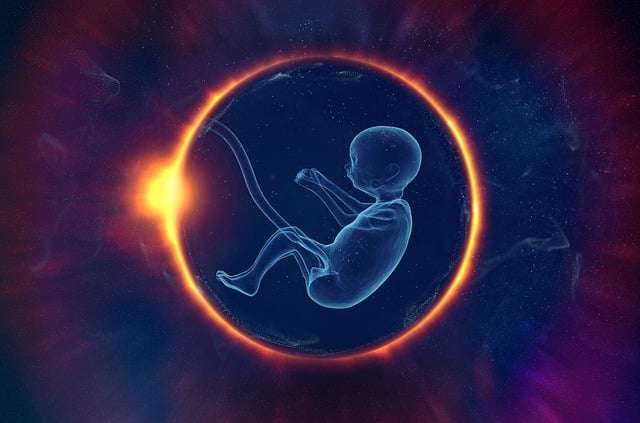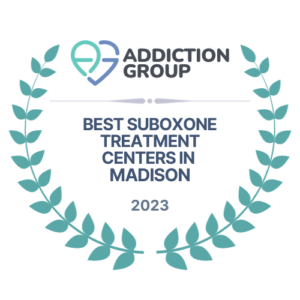

Alcohol addiction during pregnancy is a pressing problem that needs to be addressed. Significant numbers of pregnant women continue to consume alcohol despite widespread awareness of the risks.
Due to the extensive and long-lasting effects that alcohol use during pregnancy can have on fetal development, it is crucial to understand the risks and repercussions connected to this issue.
Alcohol Use During Pregnancy
Over three million U.S. women are at risk of exposing their developing babies to alcohol during pregnancy, leading to physical, behavioral, and intellectual disabilities that can have a lifelong impact. [1]
High alcohol intake, particularly binge drinking, puts a fetus at high risk for serious problems. Beer, wine, and spirits, as well as other alcoholic beverages, contain ethanol, which crosses the placental barrier and exposes the developing fetus to toxic effects.
The Developing Fetus and Alcohol


Maternal alcohol use during pregnancy or maternal alcoholism may result in a spectrum of abnormalities in the development of the embryo, depending on the amount, length, and frequency of ethanol exposure during gestation. [2]
Alcohol’s impact on fetal development stages in pregnancy:
Germinal Stage (Weeks 1–2)
The journey begins with fertilization, when sperm meets the egg, forming a single-celled zygote. Rapid cell division leads to the formation of a blastocyst, which eventually implants in the uterine wall. [3]
Embryonic Stage (Weeks 3–8)
The blastocyst transforms into an embryo during this crucial time. The heart starts to beat, and the neural tube that will eventually develop into the spinal cord and brain forms. The embryo becomes vulnerable to environmental factors, such as alcohol exposure, as the body’s major organs and systems begin to take shape. [2]
Fetal Stage (Weeks 9–40)
The development and refinement of organs and systems mark the embryo’s transition into the fetal stage. The fetus gains weight, its limbs lengthen, and its facial features become more defined. At this point in pregnancy, the fetus has developed enough to be more vulnerable to the effects of alcohol. [2]
It is significant to note that depending on the stage of pregnancy at which exposure occurs, alcohol’s effects on fetal development can differ in timing and intensity. Early exposure can interfere with fundamental processes, whereas later exposure may target more specific systems and features. Any issues brought on by alcohol during these times may have long-term effects due to the baby’s rapid rate of development.
How Alcohol Crosses the Placental Barrier and Affects the Fetus
The placenta is a remarkable organ that develops during pregnancy and connects the maternal and fetal circulatory systems. While it serves primarily as a means of nutrition and oxygen for the developing fetus, it is not a perfect barrier and permits the passage of some substances, such as alcohol, from the mother’s bloodstream to the fetus’s.
When a pregnant woman drinks alcohol, it gets into her bloodstream right away and travels to the placenta. The placenta’s structure, which is designed to facilitate the exchange of nutrients and waste, allows alcohol molecules to pass through. Once alcohol enters the fetal bloodstream, it is carried to developing organs and tissues, where it can have profound effects.
The developing fetus lacks the fully developed enzyme systems required for alcohol metabolism. As a result, alcohol stays in the fetal bloodstream much longer than it does in the mother’s. This prolonged exposure can interfere with crucial fetal developmental stages, impair the growth of developing organs, and disturb normal cellular processes.
Alcohol may also obstruct the placenta and fetus’ ability to exchange nutrients and oxygen. This disturbance may result in insufficient nutrition and oxygen delivery, further jeopardizing the fetus’s ability to grow and develop.
The effects of alcohol on the fetus are most noticeable at critical stages of organ and brain development. Alcohol’s toxic effects are particularly damaging to developing brain cells, which may result in later-life cognitive, behavioral, and physical impairments.
Risks and Consequences of Alcohol Addiction During Pregnancy
Physical Risks to the Fetus
Alcohol consumption during pregnancy can result in a variety of physical, behavioral, and intellectual disabilities that last a lifetime. It increases the risk of the following
Miscarriage: When a pregnancy ends in the loss of a baby before the 20th week.
Stillbirth: When a baby dies in the womb after 20 weeks of pregnancy.
Premature birth: This refers to the premature delivery of a baby, which occurs before 37 weeks.
Low birthweight: When a newborn weighs less than 5 pounds, 8 ounces, they are classified as having a low birthweight.
Fetal Alcohol Syndrome (FAS) and Fetal Alcohol Syndrome Disorder (FASD)
The most prevalent non-hereditary causes of intellectual disability are fetal alcohol syndrome (FAS) and fetal alcohol spectrum disorders (FASD). FAS and FASD result from intrauterine exposure to alcohol.
Fetal Alcohol Syndrome (FAS)
Fetal Alcohol Syndrome (FAS) is a severe condition resulting from significant prenatal alcohol exposure. It is one condition on the Fetal Alcohol Spectrum Disorders (FASD) spectrum. Infant’s with FAs may exhibit distinctive facial features, growth deficiencies, and organ abnormalities such as:
- Smooth philtrum
- Thin upper lip
- Small eye opening
- Small head circumference.
Fetal Alcohol Spectrum Disorders (FASDs)
FASDs encompass a spectrum of conditions caused by prenatal alcohol exposure, ranging from mild to severe. Physical abnormalities, slowed growth, and other delays in development are just some of the consequences of these conditions. Examples are:
Below average height and weight.
Problems with eyesight or hearing.
Bone, heart, and kidney issues.
Cognitive and Behavioral Consequences of Alcohol Addiction During Pregnancy
Cognitive Impairments Associated with Prenatal Alcohol Exposure
Prenatal alcohol exposure can have a negative impact on a number of cognitive abilities, including memory, focus, problem-solving ability, and communication. [3]
Behavioral Issues and Challenges in Children Exposed to Alcohol in the Womb
Prenatal alcohol exposure has been linked to a variety of behavioral issues in children, including hyperactivity, impulsivity, and problems interacting with others. [4] These challenges can impact their relationships, education, and overall quality of life.
Maternal Well-being During Pregnancy


Get the help you deserve today. Start your journey to recovery by contacting us!
Addiction During Pregnancy Can Cause Potential Harm to Maternal Health and Wellbeing.
Alcohol addiction during pregnancy not only puts the fetus in danger but also puts the mother’s health at serious risk. Excessive alcohol consumption can lead to complications such as liver damage, cardiovascular issues, and weakened immune systems. [5]
Importance of Seeking Prenatal Care and the Role of Healthcare Providers
Monitoring the health of both the mother and the growing fetus is crucial during pregnancy. Healthcare professionals are essential in informing expectant mothers about the dangers of alcohol use and offering advice on how to maintain a healthy pregnancy.
Alcoholism Support for Pregnant Women and Prevention
Alcohol addiction intervention at an early stage is essential for women struggling with alcohol addiction during pregnancy. Early assistance can reduce risks for both the mother and the growing fetus. Exploring the advantages of seeking professional assistance, such as counseling, therapy, and rehabilitation programs, highlights the significance of addressing addiction head-on for the benefit of all parties.
For expectant mothers looking for help with alcohol addiction, there are many resources available. Addiction treatment facilities, support groups, counseling services, and hotlines are a few examples of these resources.
Alcohol addiction prevention is an essential aspect of addressing alcohol addiction during pregnancy. The risks and consequences of alcohol addiction during pregnancy can be better understood through alcohol and pregnancy education and awareness campaigns aimed at women, families, healthcare professionals, and communities. The risk of alcohol-related birth defects and harm can be mitigated through support for pregnant women, the promotion of healthy lifestyles, and increased awareness of safe pregnancy practices.
Final Thoughts on Alcohol Addiction During Pregnancy: Risks and Consequences
Alcohol consumption during pregnancy almost always has a negative effect on the developing fetus, despite the fact that it is possible for an alcoholic woman to give birth to a healthy child. Any amount of alcohol consumption during pregnancy, no matter the stage, can cause the baby to have FASDs, which can lead to a variety of serious birth defects and exacerbate other developmental disabilities like cognitive impairment.
Understanding the physiological, mental, and behavioral effects of alcohol addiction during pregnancy helps bring attention to the critical need for preventative and intervention measures.
Due to the interconnectedness of maternal health and fetal development, it is imperative that pregnant women make their own well-being a priority and maintain open communication with their healthcare providers in order to have a healthier pregnancy.
Interested in learning more? Read more related articles: The Impact of Alcohol Withdrawal on Sleep Patterns
Contact National Addiction Specialists For Your Recovery
National Addiction Specialists is here to help and support you!
Sources
- C. (2016, February 2). Alcohol and Pregnancy. Centers for Disease Control and Prevention. https://archive.cdc.gov/#/details?url=https://www.cdc.gov/vitalsigns/fasd/index.html
- Developmental Timeline of Alcohol-Induced Birth Defects | The Embryo Project Encyclopedia. (2011, April 24). Developmental Timeline of Alcohol-Induced Birth Defects | the Embryo Project Encyclopedia. https://embryo.asu.edu/pages/developmental-timeline-alcohol-induced-birth-defects
- How a Baby Develops During the Prenatal Period. (2023, March 11). Verywell Mind. https://www.verywellmind.com/stages-of-prenatal-development-2795073
- https://downloads.aap.org/AAP/PDF/FASD/Dev_and_Behav_Effects_FASD_1-Page_Resource_FINAL_no_bleed.pdf
- DENNY, L., COLES, S., & BLITZ, R. (n.d.). Fetal Alcohol Syndrome and Fetal Alcohol Spectrum Disorders. Fetal Alcohol Syndrome and Fetal Alcohol Spectrum Disorders | AAFP. https://www.aafp.org/pubs/afp/issues/2017/1015/p515.html
- DEJONG, K., OLYAEI, A., & LO, J. O. (n.d.). Alcohol Use in Pregnancy. PubMed Central (PMC). https://doi.org/10.1097/GRF.0000000000000414
- Sebastiani, G., Borrás-Novell, C., Casanova, M. A., Tutusaus, M. P., Martínez, S. F., Gómez Roig, M. D., & García-Algar, O. (2018, August 2). The Effects of Alcohol and Drugs of Abuse on Maternal Nutritional Profile during Pregnancy. PubMed Central (PMC). https://doi.org/10.3390/nu10081008
- DeVido, J., Bogunovic, O., & Weiss, R. D. (n.d.). Alcohol Use Disorders in Pregnancy. PubMed Central (PMC). https://doi.org/10.1097/HRP.0000000000000070
- Tai, M., Piskorski, A., Kao, J. C., Hess, L. A., de la Monte, S. M., & Gündoğan, F. (2016, December 5). Placental Morphology in Fetal Alcohol Spectrum Disorders. PubMed Central (PMC). https://doi.org/10.1093/alcalc/agw088












